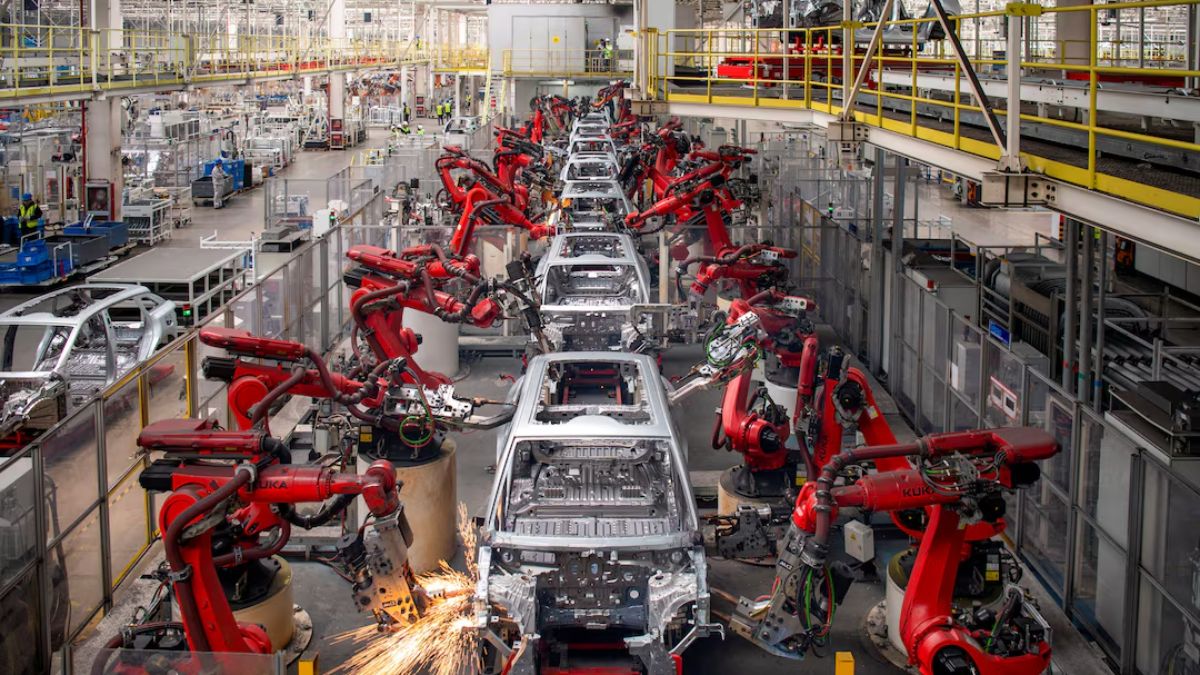UK automotive manufacturing contracted for the twelfth consecutive month in February, with total output declining by 11.6 per cent year-on-year, according to new data released by the Society of Motor Manufacturers and Traders (SMMT) on Thursday (March 27).
Passenger car production fell to 82,178 units from 92,965 a year earlier, driven by soft domestic and international demand, model changeovers and ongoing restructuring across several plants.
The figures come at a sensitive moment for the UK’s automotive sector, as US President Donald Trump confirmed a new 25 per cent tariff on imported vehicles, to take effect on April 2.
The move, part of a broader package of reciprocal tariffs targeting key trading partners, could further weigh on British carmakers already grappling with falling output and Brexit-related uncertainties.
SMMT chief executive Mike Hawes urged both governments to prioritise negotiations. “The announcement of US tariffs is disappointing but not unexpected,” Hawes said. “The UK and US must come together immediately and strike a deal that works for all. With further duties likely to apply to British-built cars, time is of the essence.”
EV share climbs despite dip in output
Output of battery electric, plug-in hybrid and hybrid vehicles fell 5.6 per cent year-on-year to 27,398 units in February. However, their share of total production rose slightly to 37.1 per cent, up from 36.3 per cent a year earlier.
For the year to date, electrified models account for 39.6 per cent of all UK car production– an increase from 36 per cent last year– despite a more modest 2.1 per cent fall in volume compared with the wider sector’s 11 per cent decline.
The data highlights the relative resilience of the UK’s electric vehicle segment as automakers continue to pivot towards lower-emission technologies to meet tightening environmental regulations and shifting consumer preferences.
Commercial vehicle output slumps
Commercial vehicle (CV) production posted a steeper decline, dropping 35.9 per cent to 8,364 units in February. The fall was attributed primarily to lower van output and a strong year-on-year comparison, with February 2023 marking the sector’s best performance since 2008.
Domestic demand for CVs rose significantly, accounting for 55.2 per cent of total output, with volumes increasing by more than 50 per cent to 4,621 units. However, exports fell sharply by 62.7 per cent to 3,743 units, with almost 94 per cent of exported vehicles previously destined for the EU.
The drop in EU-bound shipments– down by 5,956 units– reflects broader pressures on the sector, including weakened European demand and rising input costs.
The latest figures underscore the mounting challenges facing UK automotive manufacturers as they navigate a complex landscape of structural change, geopolitical uncertainty and potential new trade barriers.
With inputs from agencies


)
)
)
)
)
)
)
)
)



